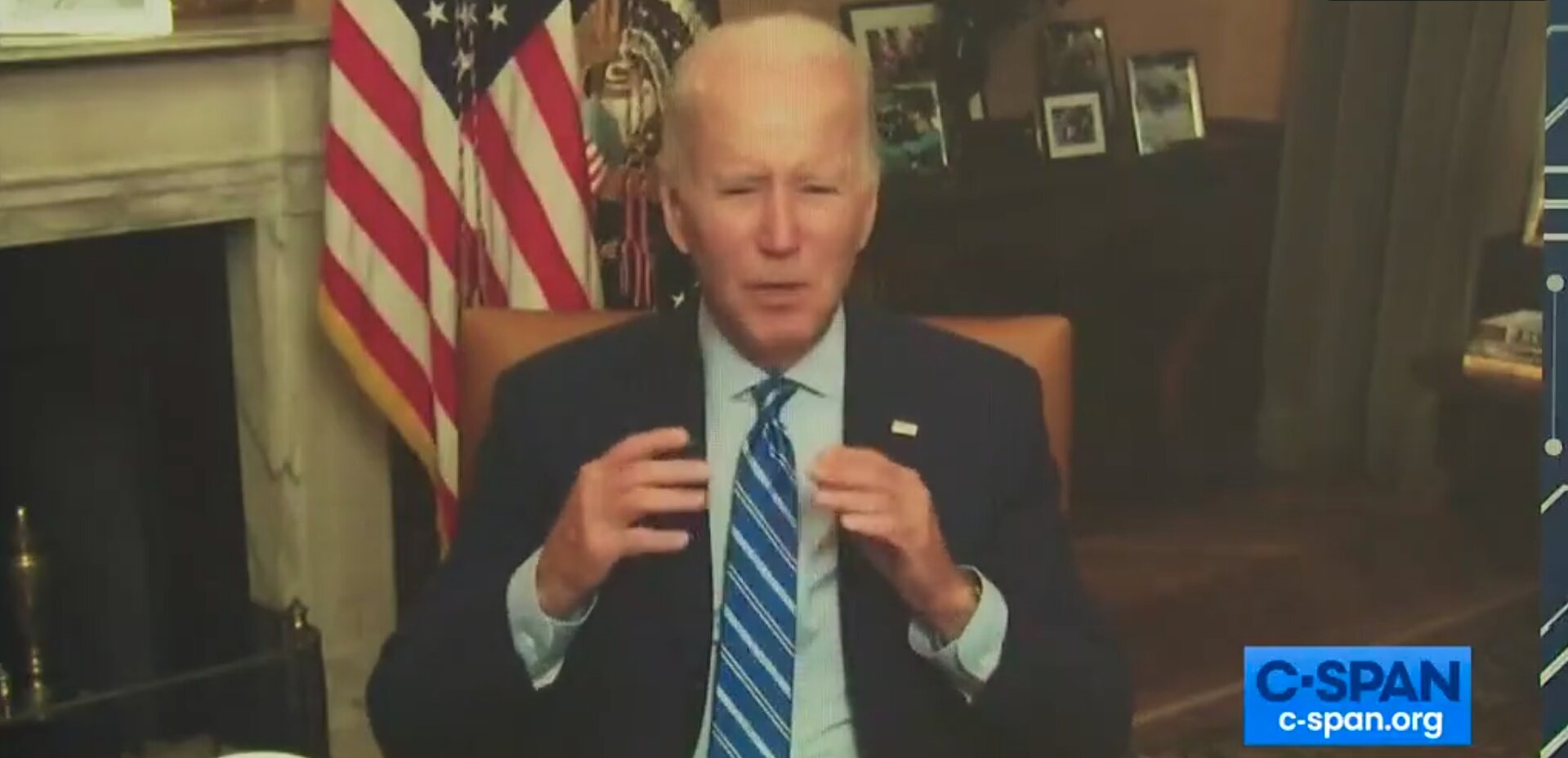After promoting a more robust definition of a recession, President Joe Biden is seeking to downplay concerns that the country is headed toward a downturn.
Biden took reporters’ questions virtually on Monday due to his positive COVID-19 test result.
Fox News’ Peter Doocy asked him, “We’re getting GDP numbers on Thursday. How worried should Americans be that we could be in a recession?”
“We’re not going to be in a recession, in my view,” Biden responded.
He went on, “The unemployment rate is still one of the lowest we’ve had in history — it’s in the 3.6 area. We still found ourselves with people investing. My hope is we’ll go from this rapid growth to steady growth, and so we’ll see some coming down.”
“But I don’t think, God willing, I don’t think we’re going to see a recession,” Biden added.
Watch the video below:
BIDEN: "God willing, I don't think we're going to see a recession." pic.twitter.com/jFvcO8ix6a
— Townhall.com (@townhallcom) July 25, 2022
The question comes amid reports that economists and some industries are predicting a downturn.
A widely accepted definition of a recession is two consecutive quarters in the gross domestic product (GDP) and a downturn among other economic factors.
In the first quarter, the U.S. saw the GDP shrink by 1.6%. On Thursday, the GDP for the second quarter of the year will be released. The Federal Reserve Bank of Atlanta’s GDPNow model is predicting that GDP for the second quarter will be -1.6%.
If there was negative GDP growth in the second quarter, that could signal that the country is in a recession.
However, the Biden administration appears to be trying to pre-empt headlines about a recession by pointing out that economists will also look at factors such as the labor market and spending when deciding whether or not there is a recession.
In a handout released last week, the White House said, “While some maintain that two consecutive quarters of falling real GDP constitute a recession, that is neither the official definition nor the way economists evaluate the state of the business cycle.”
“Instead, both official determinations of recessions and economists’ assessment of economic activity are based on a holistic look at the data—including the labor market, consumer and business spending, industrial production, and incomes,” it continued. “Based on these data, it is unlikely that the decline in GDP in the first quarter of this year—even if followed by another GDP decline in the second quarter—indicates a recession.”
Finally, it stated, “Recession probabilities are never zero, but trends in the data through the first half of this year used to determine a recession are not indicating a downturn.”
Regardless of what the administration says, if Americans feel like there is a recession, they’re going to act like there is a recession and likely vote that way.















 Continue with Google
Continue with Google